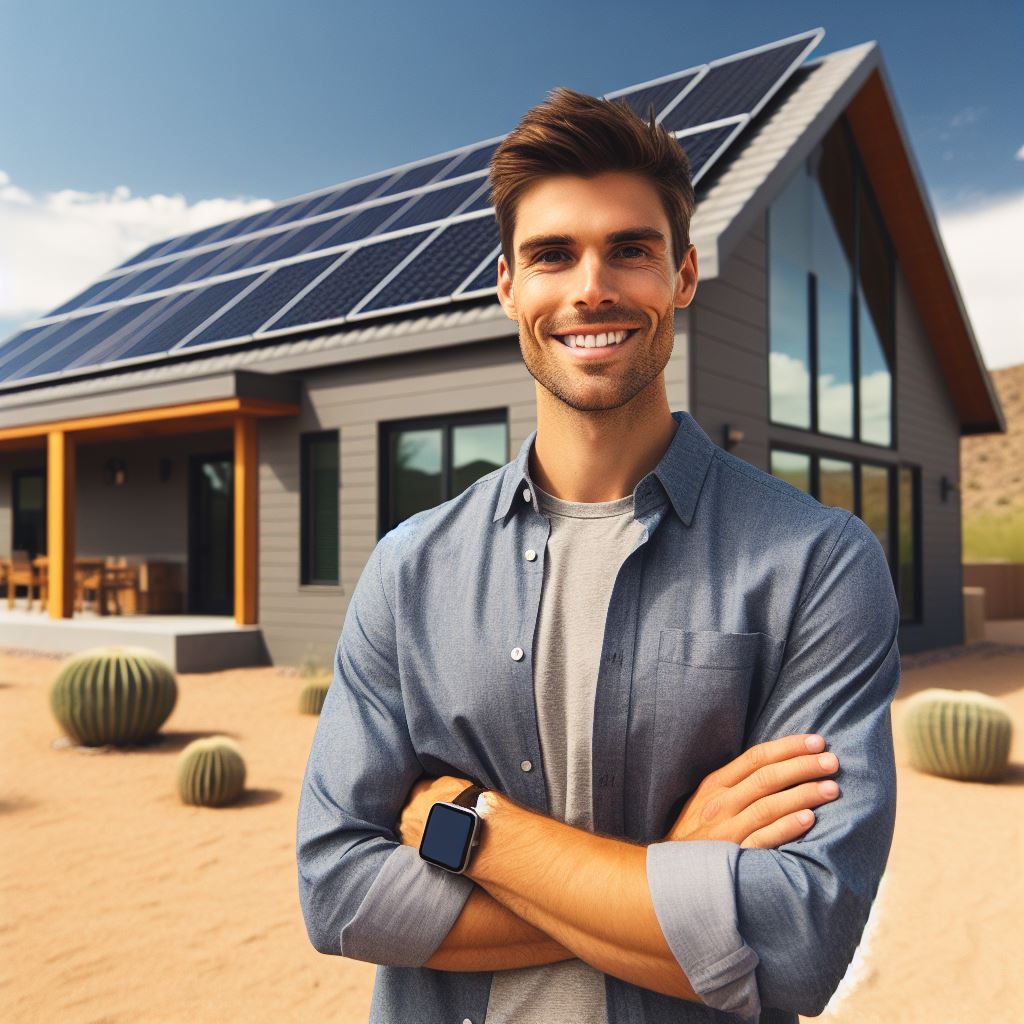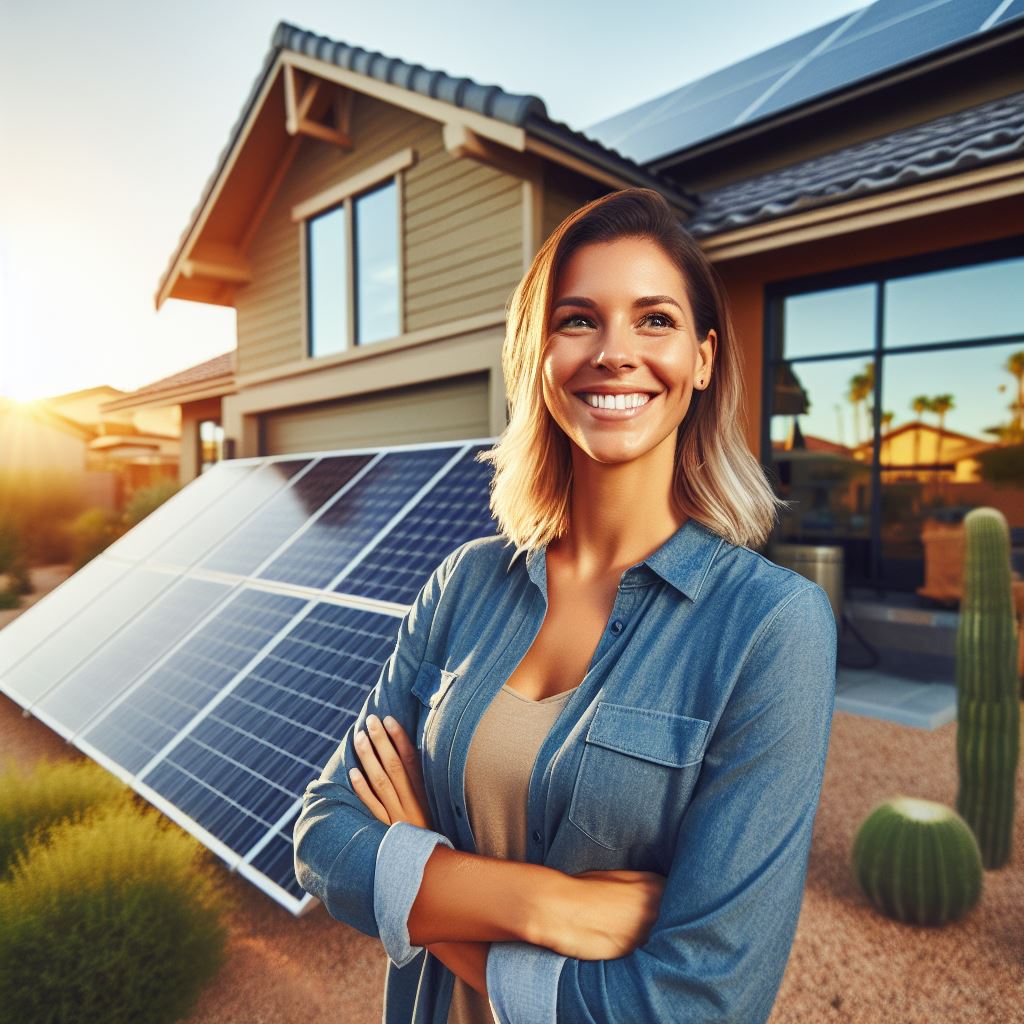Introduction
The eco housing market refers to the real estate sector that focuses on environmentally friendly and sustainable housing options.
It prioritizes energy efficiency, renewable resources, and low environmental impact.
Eco-friendly housing not only benefits the environment but also improves quality of life for residents.
It reduces energy consumption, lowers utility bills, promotes healthier indoor air quality, and contributes to a more sustainable future.
The Carolinas, encompassing North and South Carolina, have witnessed a significant surge in the eco housing market.
Increasingly, builders and developers are offering green homes and communities to meet the rising demand for sustainable living options.
Definition and characteristics of eco housing
In today’s blog section, we will explore the definition and characteristics of eco housing, as well as the explanation of its eco-friendly features and construction methods.
Additionally, we will delve into the benefits of eco housing, such as energy efficiency, reduced carbon footprint, and a healthier living environment.
Eco-friendly features and construction methods
Eco housing, also known as sustainable or green housing, refers to homes that are designed and built with a focus on minimizing their impact on the environment throughout their entire lifecycle.
These homes are constructed using eco-friendly materials and techniques, prioritizing energy efficiency, water conservation, and indoor air quality.
One of the key characteristics of eco housing is its use of eco-friendly features and construction methods.
These may include the installation of energy-efficient appliances and lighting, solar panels for renewable energy generation, rainwater harvesting systems, and efficient insulation for temperature control.
Construction methods may involve using recycled or reclaimed materials, such as reclaimed wood or recycled metal, as well as employing sustainable building practices to minimize waste and pollution.
Benefits of eco housing: energy efficiency, reduced carbon footprint, healthier living environment
The benefits of eco housing are abundant. First and foremost, energy efficiency is a major advantage.
These homes are designed to reduce energy consumption by utilizing energy-efficient appliances, proper insulation, and advanced heating and cooling systems.
Transform Your Real Estate Decisions
Unlock personalized real estate insights crafted just for you. Get actionable advice designed to amplify your success.
Get StartedAs a result, homeowners can enjoy significant savings on their energy bills while reducing their reliance on fossil fuels.
Furthermore, eco housing contributes to a reduced carbon footprint.
By using renewable energy sources like solar power, eco homes generate clean energy and minimize greenhouse gas emissions.
Additionally, the use of sustainable materials and construction methods reduces the carbon footprint associated with the manufacturing and transportation of building materials.
Another significant benefit of eco housing is the creation of a healthier living environment.
These homes prioritize indoor air quality by incorporating proper ventilation systems and using non-toxic materials, paints, and finishes.
By minimizing exposure to harmful chemicals and pollutants, residents can enjoy improved respiratory health and overall well-being.
Moreover, eco housing promotes sustainable water management practices.
Rainwater harvesting systems allow homeowners to collect and reuse rainwater for various purposes, such as irrigation or flushing toilets.
This reduces the strain on local water resources and helps conserve water, especially in regions prone to drought.
In essence, eco housing has gained popularity in the Carolinas and beyond due to its numerous benefits.
The use of eco-friendly features and construction methods not only ensures energy efficiency but also contributes to a reduced carbon footprint.
Additionally, eco housing provides a healthier living environment by prioritizing indoor air quality and implements sustainable water management practices.
As the world becomes more conscious of its environmental impact, eco housing continues to be a viable solution for sustainable and responsible living.
Showcase Your Real Estate Business
Publish your company profile on our blog for just $200. Gain instant exposure and connect with a dedicated audience of real estate professionals and enthusiasts.
Publish Your ProfileRead: Nevada’s Green Investment Opportunities
Current trends in the eco housing market in the Carolinas
As the demand for eco-friendly homes continues to rise in the Carolinas, the housing market is experiencing significant changes.
Consumers are now actively seeking environmentally-conscious options, driving the need for more eco housing developments.
Increase in demand for eco housing
One of the prominent trends in the eco housing market is the increase in demand for such properties.
People are becoming increasingly aware of the impact their choices have on the environment and are looking for ways to reduce their carbon footprint.
As a result, homebuyers in the Carolinas are showing a higher preference for eco housing compared to traditional homes.
Rise in green building certifications and standards
Another trend in the eco housing market is the rise in green building certifications and standards.
Certifications such as LEED (Leadership in Energy and Environmental Design) and Energy Star are gaining popularity among builders and homeowners alike.
These certifications ensure that homes meet specific energy and sustainability standards, appealing to eco-conscious consumers.
By investing in green building certifications, developers can differentiate their properties and attract buyers in a competitive market.
Growing interest from both homebuyers and real estate developers
Both homebuyers and real estate developers in the Carolinas are increasingly recognizing the long-term benefits of eco housing.
Homebuyers see eco housing as an opportunity to reduce their environmental impact while still enjoying modern features and amenities.
On the other hand, developers are incorporating eco-friendly practices to add value to their projects and attract environmentally-conscious buyers.
Green homes tend to have a higher resale value and appeal to a wider range of potential buyers, making them an attractive investment.
Overall, the eco housing market in the Carolinas is experiencing significant growth due to increased demand, the adoption of green building certifications, and the growing interest from both homebuyers and real estate developers.
As the focus on sustainability and environmental consciousness continues to grow, it is expected that the market will expand further, offering more choices for eco-minded individuals in the future.
Read: Arizona’s Solar-Powered Real Estate Edge
Factors driving the eco housing market in the Carolinas
Environmental consciousness and climate change concerns
These factors have played a significant role in driving the growth of the eco housing market in the Carolinas.
People are increasingly recognizing the need for sustainable housing options and are willing to invest in environmentally-friendly homes.
The environmental consciousness and concerns regarding climate change have been major drivers, pushing both developers and homeowners towards adopting eco-friendly practices.
Government incentives and policies promoting sustainable housing
The government has also played a crucial role in promoting sustainable housing through incentives and policies.
Tax benefits and grants attract homeowners to opt for eco-friendly homes, saving them money in the long run.
Moreover, government mandates and partnerships with developers ensure that green building practices are followed, further boosting the eco housing market.
Cost savings and long-term benefits for homeowners
In addition to environmental and government factors, cost savings and long-term benefits have become attractive propositions for potential homeowners.
Energy-efficient homes reduce utility bills and ensure financial savings over time.
Sustainable materials not only lower maintenance costs but also contribute to healthier living environments.
Furthermore, the potential for higher property value in the future adds an additional incentive for investing in eco-friendly homes.
Overall, the eco housing market in the Carolinas is being driven by a combination of environmental consciousness, government initiatives, and cost savings.
As more people realize the importance of sustainable living and take advantage of the benefits offered by eco-friendly homes, the market continues to grow.
With an increasing number of developers and homeowners prioritizing sustainability, the future looks promising for the eco housing sector in the Carolinas.
Showcase Your Real Estate Business
Publish your company profile on our blog for just $200. Gain instant exposure and connect with a dedicated audience of real estate professionals and enthusiasts.
Publish Your ProfileOverview of eco housing projects in the Carolinas
Notable eco-friendly neighborhoods or communities
- Asheville Eco-Village: A pioneer in sustainable living with solar-powered homes and organic gardens.
- Serenbe: A biophilic community in Georgia, inspiring eco-housing developments in the Carolinas.
- Columbia Ecovillage: Promotes communal living and renewable energy sources for its residents.
- Echo Hills Village: Designed for retirees, featuring energy-efficient homes and nature preservation.
Showcasing innovative eco housing designs and technologies
- Net-zero homes: Energy-efficient designs result in homes that produce as much energy as they consume.
- Green roofs: Utilizing rooftop gardens to provide insulation and reduce energy consumption.
- Passive solar design: Maximizing natural light and heat to minimize the need for artificial lighting and heating.
- Rainwater collection systems: Harvesting rainwater for non-potable uses, reducing demand on municipal water supplies.
Success stories and positive impacts on the local community
- Saving money: Eco homes are equipped with energy-saving features, leading to lower utility bills for residents.
- Health benefits: Eco housing promotes better indoor air quality, resulting in improved health for residents.
- Environmental conservation: Sustainable practices reduce carbon footprints and protect natural resources.
- Community engagement: Eco housing projects often foster a sense of community and encourage social interactions.
Eco housing projects in the Carolinas are thriving, offering environmentally friendly options that positively impact both residents and the local community.
Notable neighborhoods like Asheville Eco-Village and Serenbe showcase innovative designs and technologies, paving the way for sustainable living.
These eco-friendly communities not only save money and improve health but also contribute to environmental conservation.
To achieve a more sustainable future, it is crucial to support and highlight such success stories in the eco housing market.
Read: Eco-Smart Homes in New England

Challenges and barriers in the eco housing market
Higher upfront costs and financial challenges for homebuyers
- Investing in eco housing comes with higher initial expenses that can be a barrier.
- Homebuyers may face difficulties in securing financing due to the higher upfront costs.
- Higher costs of eco-friendly materials and technologies can be a deterrent for potential buyers.
- The lack of available financial incentives or subsidies makes it even more challenging for homebuyers.
- Addressing these financial challenges is crucial to promote the growth of the eco housing market.
Limited availability of eco housing options
- The eco housing market in the Carolinas is still relatively small, leading to limited availability.
- Homebuyers may struggle to find homes in their desired locations that meet their eco-friendly requirements.
- Scarcity of eco housing options can lead to increased competition and higher prices in the market.
- Developers and builders need to increase their efforts to meet the rising demand for eco housing.
- Collaborations between government agencies and private entities can help expand the offerings of eco housing.
Education and awareness needed to promote eco housing to a wider audience
- Many potential homebuyers are unaware of the benefits and availability of eco housing options.
- There is a need to provide accessible information to educate consumers about the advantages of eco housing.
- Public awareness campaigns can play a crucial role in highlighting the importance of eco-friendly living.
- Efforts should be made to emphasize the long-term cost savings and environmental benefits of eco housing.
- Collaborations with local schools and organizations can help promote eco housing among younger generations.
In general, while the eco housing market in the Carolinas has shown promising growth, there are several challenges and barriers that need to be addressed.
Higher upfront costs and financial challenges for homebuyers, limited availability of eco housing options, and the need for education and awareness are some of the key obstacles.
Overcoming these challenges will require collaboration between homebuyers, developers, government agencies, and the general public to ensure the widespread adoption of eco housing for a more sustainable future.
Read: Sustainable Urban Spaces in Chicago
Future prospects and opportunities in the eco housing market
Predicted growth and expansion of the eco housing market
The eco housing market in the Carolinas is expected to see significant growth and expansion in the coming years.
Increasing awareness and concern about environmental issues have led to a growing demand for eco-friendly housing options.
Consumers are increasingly interested in energy-efficient and sustainable homes that minimize their carbon footprint.
The availability of incentives and tax breaks for eco housing further fuels the market’s growth potential.
As more individuals and families prioritize sustainable living, the demand for eco housing will continue to rise.
Potential for job creation and economic development
The growth of the eco housing market in the Carolinas presents a promising opportunity for job creation.
The development, construction, and maintenance of eco-friendly homes require a skilled workforce.
From architects and engineers to construction workers and solar energy technicians, various professionals will find employment in this sector.
Additionally, the eco housing industry can stimulate economic development by attracting investments and generating revenue.
The demand for eco-friendly building materials and technologies will also contribute to the growth of related industries.
Role of technology and innovation in advancing the eco housing industry
Technology and innovation play a crucial role in advancing the eco housing industry in the Carolinas.
Advancements in renewable energy sources, such as solar panels and geothermal systems, make eco housing more feasible and affordable.
Smart home technologies that optimize energy usage and promote sustainable living are becoming increasingly popular.
Integration of energy-efficient appliances, efficient insulation, and automated systems further enhance eco-friendly homes.
Continued research and development efforts will lead to even more innovative solutions for eco housing in the future.
In review, the eco housing market in the Carolinas is poised for significant growth and expansion.
As awareness about environmental issues continues to increase, so does the demand for eco-friendly housing options.
This growth offers immense opportunities for job creation and economic development.
The development of a skilled workforce and the attraction of investments are key factors in the market’s potential success.
Technology and innovation will also play a critical role in advancing the eco housing industry, making sustainable living more accessible and efficient.
With an increasing focus on environmental sustainability, the future prospects for the eco housing market in the Carolinas are undoubtedly promising.
Showcase Your Real Estate Business
Publish your company profile on our blog for just $200. Gain instant exposure and connect with a dedicated audience of real estate professionals and enthusiasts.
Publish Your ProfileConclusion
Recap of the importance and benefits of eco housing
Eco housing stands as a beacon of sustainability in our modern world, offering a multitude of benefits that extend beyond the individual homeowner.
By prioritizing energy efficiency, eco-friendly materials, and innovative design, these homes reduce their environmental footprint while providing comfortable and healthy living spaces for occupants.
From lower utility bills to improved indoor air quality, the advantages of eco housing are numerous and far-reaching.
Emphasis on the growing eco housing market in the Carolinas
In recent years, the Carolinas have seen a remarkable surge in the demand for eco-friendly housing options.
This trend reflects a broader shift towards environmental consciousness and sustainable living practices among residents.
With a diverse landscape ranging from urban centers to rural communities, the Carolinas offer ample opportunities for eco housing development.
Builders and developers are responding to this demand by incorporating green building techniques and eco-friendly features into new construction projects, further driving the growth of the eco housing market in the region.
Encouragement for readers to explore and support eco housing initiatives in their communities
As we look to the future, it is essential for individuals to actively engage with and support eco housing initiatives in their communities.
Whether through advocating for policy changes, participating in green building projects, or simply making environmentally conscious choices in our own homes, each of us has a role to play in fostering a more sustainable future.
By supporting eco housing, we not only reduce our environmental impact but also contribute to the creation of healthier, more resilient communities for generations to come.
Together, let us embrace the opportunity to build a greener, more sustainable future for the Carolinas and beyond.




